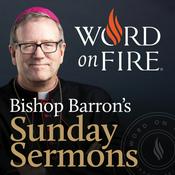Friends, a great professor of mine at Mundelein Seminary, Dr. Richard Issel, once said, “If you want to be happy, stop worrying about being happy and get on with becoming fulfilled.” We find something similar in Jordan Peterson’s observation that “self-consciousness is equivalent to misery.” In short, we’re most unhappy when we’re turned inward, fussing about ourselves. If you want to be psychologically healthy, forget about yourself and move out toward others. I always think of this when I come across our Gospel for today from the great Sermon on the Mount.



